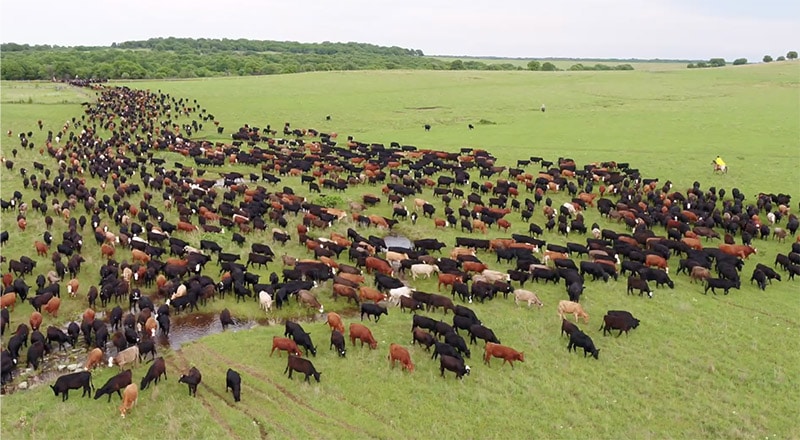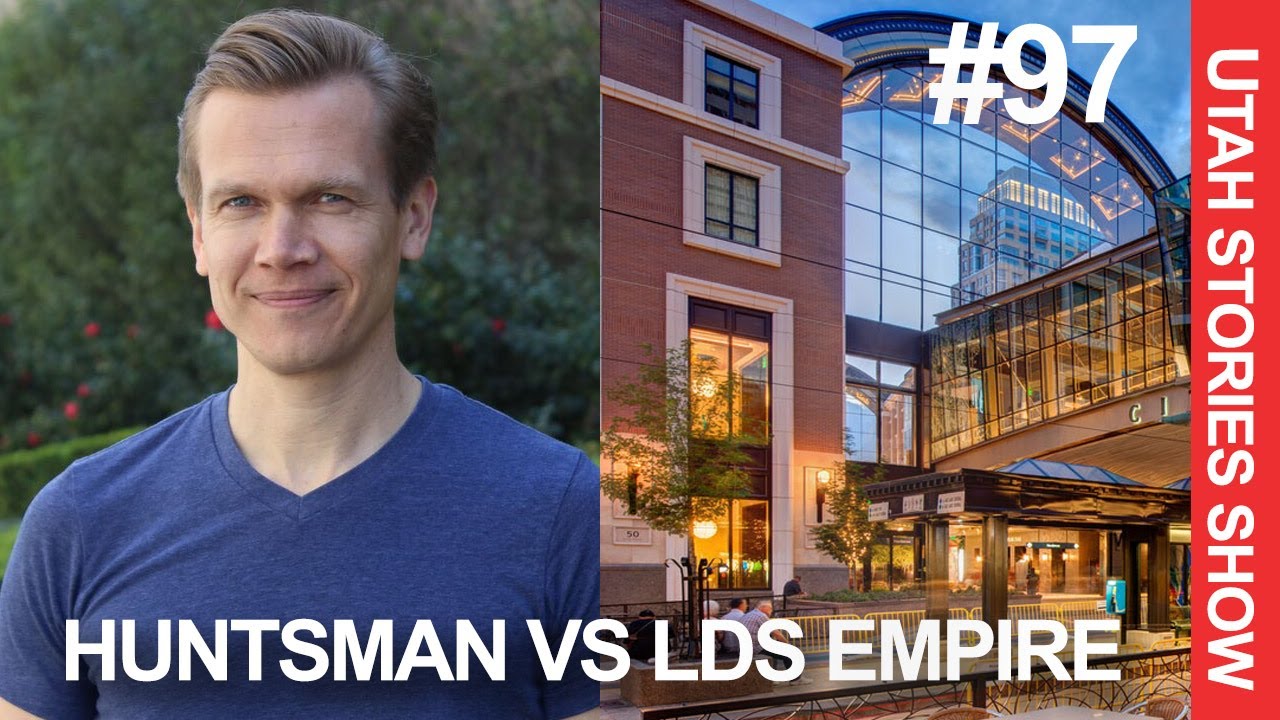
James Huntsman, son of billionaire philanthropist Jon Huntsman, is suing the LDS Church for $5 million for back tithing. He says the church misled him into believing that all of his tithing would be used for charitable purposes. When he learned that the money was actually spent on financing the bailout of the Church’s life insurance company and the Mormon Mall he resigned his church membership and filed a lawsuit against the Church for his back tithing. Does he have a case? And is the Church violating the terms of being a non-profit?
After the Washington Post released a story from whistle-blower sources inside of one of the Church’s financial divisions that tithing funds had been misappropriated for use in the completion of the City Creek Center, James Huntsman rescinded his LDS membership and decided to file a lawsuit against the LDS Church.
James Huntsman is suing because he expected that his tithing money would be used for charity, and when the story came out from the Washington Post he learned that funds were being used to help finance the completion of the City Creek Center Mall, he determined this was a violation of the Church’s 501(c)(3) non-profit charter.
The LDS Church maintains many shell corporations and they were using the funds under the entity called Ensign Peak Advisors, to assist it’s business operations that were suffering during the financial downturn of 2008. The for-profit businesses that were beneficiaries of the money from the LDS Church account were Beneficial Life Insurance and the City Creek Center mall in downtown Salt Lake City.
The LDS Church is calling the claims of Huntsman and the whistle blowers as, “baseless.” And they hope that the suit will be thrown out of federal court.
According the the (LDS Church-owned) Deseret News:
In 2019, David A. Nielsen and his brother Lars Nielson resigned from employment at the church’s investment firm Ensign Peak Advisors, after his wife and children left the church. He sent a letter to the IRS claiming the church does not meet IRS regulations.
Ensign Peak remained a financial entity kept secret from the public. Their offices are located inside of the City Creek Center, but without any official signs as to their existence. The Wall Street Journal uncovered that the entire amount of funds held by Ensign was $100 billion, making it one of the wealthiest Wall Street private investment funds in the world. The LDS’s Church’s financial empire has been kept mostly under wraps, but with rumors that their land holdings in Hawaii and Florida alone amount to hundreds of millions of dollars, their private account invested in Wall Street’s largest corporations wasn’t disclosed until these stories and the whistle-blowers released the information. The LDS Church does not hide the fact that they have many pubic business ventures. Other businesss entities are maintained through several shell a companies that don’t openly disclose their LDS affiliation. So how much money does the church have? And what are their business interests?
The Wealth of the LDS Church Empire
The central entity that the LDS Church manages companies through is called Deseret Management. Which can be described as a huge umbrella or holding company with at least seven subsidiaries. Subsidiaries include Radio and Television broadcasting (through KSL News), Deseret Book and Deseret Digital Management, Insurance through Beneficial Life Insurance; As well as hospitality through Hawaii Reserves and Temple Square Hospitality. They also have an entity called Utah Property Management Associates (formerly Zions securities), which manages 3 million square feet of commercial real estate in downtown Salt Lake City as well as hundreds of apartments. They also have a newspaper called Deseret News, and their secondary broadcasting company called Bonneville International Corporation which owns several radio stations. Through Deseret Management, according to Dun and Bradstreet, the Church brings in nearly $800 million per year in revenue.

The Church also has ownership of a massive multinational agriculture business called Ag Reserves which owns millions of acres of farmland world-wide. Another shell company operated by the LDS Church called Farmland Reserve, which maintains no official website, but apparently has over 800 employees. Farmland Reserve recently purchased a property in Eastern Washington, narrowly outbidding Bill Gates for that 219 acre property with land and water on the Columbia River.

From shell companies, investments and management entities, the LDS Church owns or is affiliated with dozens of businesses and generates millions of dollars each year that they claim “has no affiliation with tithing.”
LDS Church spokesman Eric Hawkins called the lawsuit by Huntsman “baseless” but acknowledged in the Washington Post story that Huntsman had resigned from the LDS Church in 2020. The church’s newspaper, The Deseret News, reported that the 16.5 million-member church maintains reserve funds to be used in economic downturns to support global missionary work, more than 30,000 congregations, 200 temples and five universities. But the Church did not want to answer any specific questions regarding Ensign Peak Advisors, the financial firm from which David and Lars Nielson originated their whistle-blower complaint.
Whether or not the Church is currently under investigation by the IRS, or whether the LDS Church is in fact in violation of their 501(c)(3) charter is a question Forbes and other business-oriented publications have already attempted to answer. We did find analysis from a good source on this matter The Public Square Magazine, they write:
After looking at the facts and allegations involved, Peter J. Reilly, a non-Latter-day Saint CPA and tax specialist, observed in Forbes that “Ensign is not a private foundation. It is an integrated auxiliary of a church. And there is nothing in the tax law that prevents churches from accumulating wealth.” Reilly reached out to Paul Streckfus, another tax expert who runs a trusted publication focusing on tax-exempt organizations. He too concluded that the “matter does not merit IRS attention.”
Huntsman’s claim that the Church used proceeds to fund the City Creek Center and Beneficial Life Insurance during the economic downturn of 2008 is another matter. For Huntsman to win the case would depend on whether or not he has inside information that demonstrates proof of impropriety. Public Square Magazine also says that as the fund is an “integrated auxiliary” of the church, the fund is allowed to make investments. When the Church bailed out it’s failing enterprises in 2008, these bailouts can be called “investments”. Making significant investments into the City Creek Center and Beneficial Life Insurance during the economic downturn is legal under the integrated auxiliary IRS provision. Beneficial Life has paid back billions in dividends to investors, and the City Creek Center, managed by the largest mall management company in the world– Taubman Partners is potentially a sound investment, not a misappropriation of tithing, so it appears on face value that Huntsman has little chance of winning this case.
But there are at least three outstanding moral and ethical questions that remain that both non-Mormons and Church members should consider in the LDS Church’s hidden $100 billion account:
- Should a church be maintaining $100 billion in a “rainy day fund” when its global worldwide operational costs are $5-$7 billion per year? Why not give a portion of this excess tithing away to other non-profit organizations or initiate other local programs to alleviate poverty or aid with our current housing crisis in Utah?
- Should a religious organization and its members be so economically connected and monopolistic in their practices? It could be argued that the LDS Church has an economic monopoly in commercial real estate and retail in at least downtown Salt Lake City. They plan to build more mall/temple developments in the coming years in other cities such as Tempe, Arizona. If an organization is behaving more like a business than a religion should it still be called a religion and have all the tax advantages as such?
- Should a religious organization be involved in so many commercial enterprises as to give their members an unfair competitive advantage in the job marketplace and overall economies in which they operate? If they are providing preferential treatment to members over non-members, isn’t this in essence replacing free-market capitalism with a theocratic empire?
Utah Stories has published previous stories examining the LDS Church’s business dealings in downtown Salt Lake City.
News Reporter Rod Decker on the Business Motives of the LDS Church
LDS Church Takes Heat for Political Involvement
WATCH THE VIDEO
Subscribe to Utah Stories weekly newsletter and get our stories directly to your inbox


